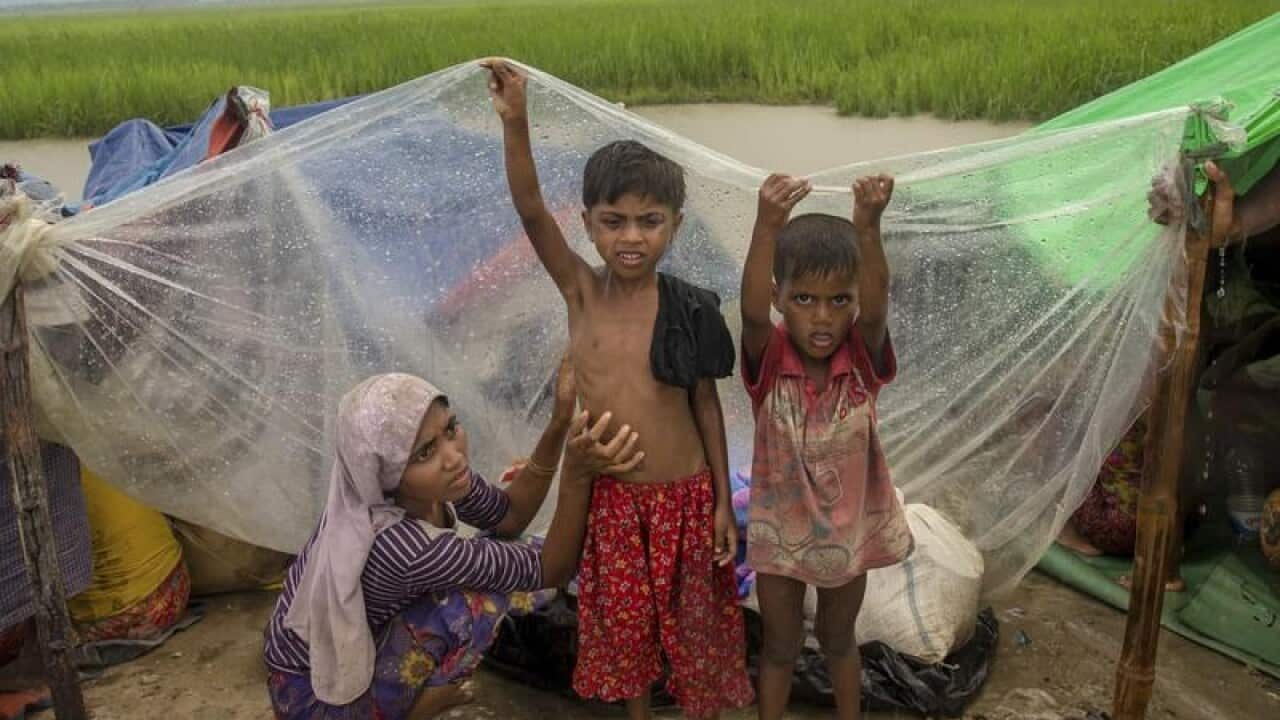Nearly 340,000 Rohingya children are living in squalid conditions in Bangladesh camps where they lack enough food, clean water and health care, the United Nations Children's Fund says.
Up to 12,000 more children join them every week, fleeing violence or hunger in Myanmar, often still traumatised by atrocities they witnessed, it said in a report entitled 'Outcast and Desperate'.
In all, almost 600,000 Rohingya refugees have left northern Rakhine state since August 25 when the UN says the Myanmar army began a campaign of "ethnic cleansing" following insurgent attacks.
"This isn't going to be a short-term, it isn't going to end anytime soon," Simon Ingram, the report's author and a UNICEF official, told a news briefing.
"So it is absolutely critical that the borders remain open and that protection for children is given and equally that children born in Bangladesh have their birth registered."
Most Rohingya are stateless in Myanmar and many fled without papers, he said, adding of the newborns in Bangladesh: "Without an identity they have no chance of ever assimilating into any society effectively."
Related Reading

Myanmar has failed to protect Rohingya from atrocities: UN
Safe drinking water and toilets are in "desperately short supply" in the chaotic teeming camps and settlements, Ingram said, after spending two weeks in Cox's Bazar in Bangladesh.
"In a sense it's no surprise that they must truly see this place as a hell on earth," he said.
One in five Rohingya children under the age of five is estimated to be acutely malnourished, requiring medical attention, he said.
"There is a very, very severe risk of outbreaks of water-borne diseases, diarrhoea and quite conceivably cholera in the longer-term," he added.
UNICEF is seeking $US76 million ($A96 million) under a $434 million UN appeal for Rohingya refugees for six months, but is only seven per cent funded.


